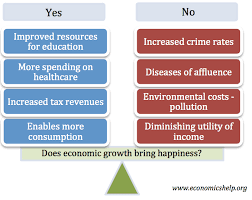Beyond Growth, a New Economic Paradigm
In today's world of overpopulation, overdevelopment and ecological overshoot, chasing constant growth is wilful lunacy. Yet our leaders, like those of every developed country, are obsessed with growing GDP, Gross Domestic Product.
One dissenter who has, for more than 50 years championed the shift to a steady state economy, Herman Daly, makes the case for abandoning our GDP fetish while we still can. The former World Bank senior economist argues that growth has itself become uneconomic.
The question is, Does growth, as currently practiced and measured, really increase wealth? Is it making us richer in any aggregate sense, or might it be increasing costs faster than benefits and making us poorer? Mainstream economists don’t have any answer to that. The reason they don’t have any answer to that is that they don’t measure costs. They only measure benefits. That’s what G.D.P. is.3
There’s nothing subtracted from G.D.P. But the libertarian notion is logical. If you’re going to be a libertarian, then you can’t accept limits to growth. But limits to growth are there. I recall that Kenneth Boulding4 said there are two kinds of ethics. There’s a heroic ethic and then there’s an economic ethic. The economic ethic says: Wait a minute, there’s benefits and costs. Let’s weigh the two. We don’t want to charge right over the cliff. Let’s look at the margin. Are we getting better off or worse? The heroic ethic says: Hang the cost! Full speed ahead! Death or victory right now! Forward into growth! I guess that shows a faith that if we create too many problems in the present, the future will learn how to deal with it.
Abandoning growth.
Quantitative growth - evermore of everything - is no longer a viable option. Qualitative growth, however, is quite feasible. We can grow in knowledge and, with that, wisdom. We can focus on quality of life instead. We really have no other choice.


Comments
Post a Comment